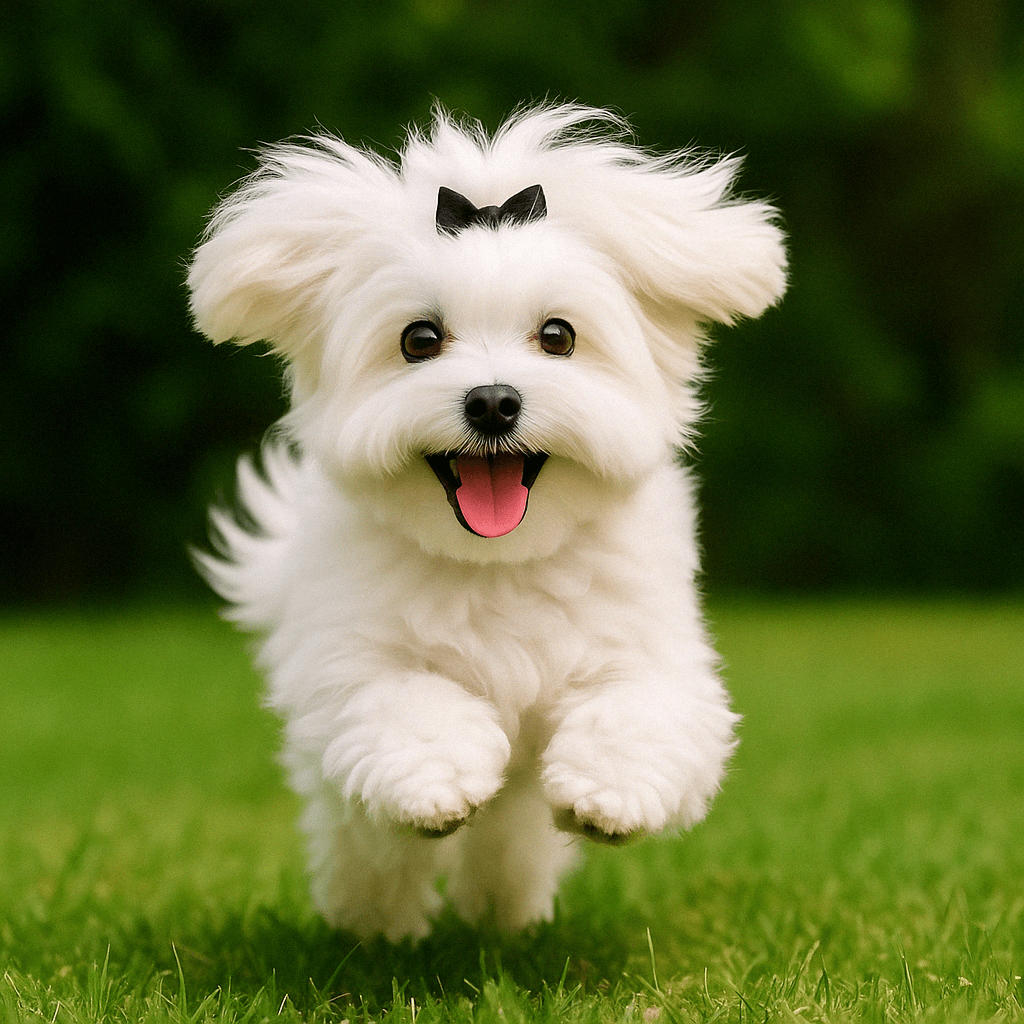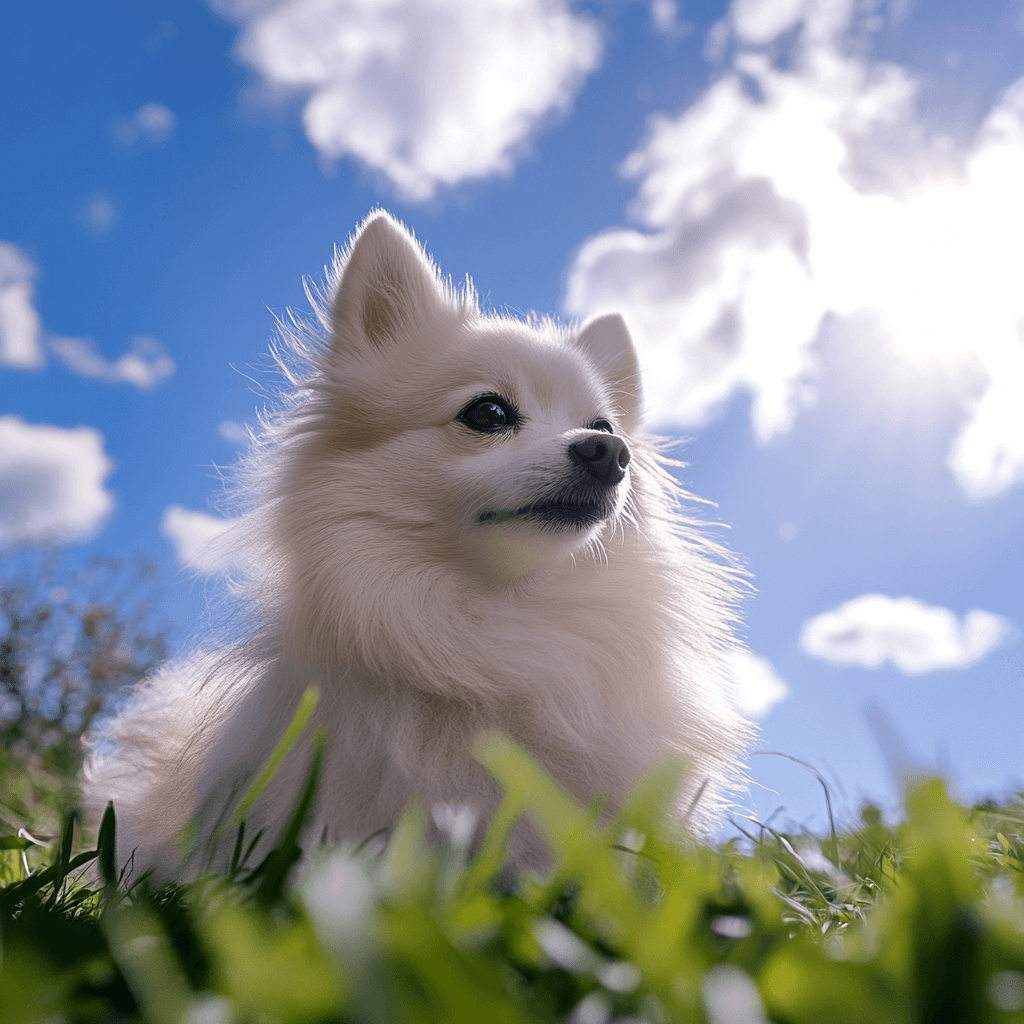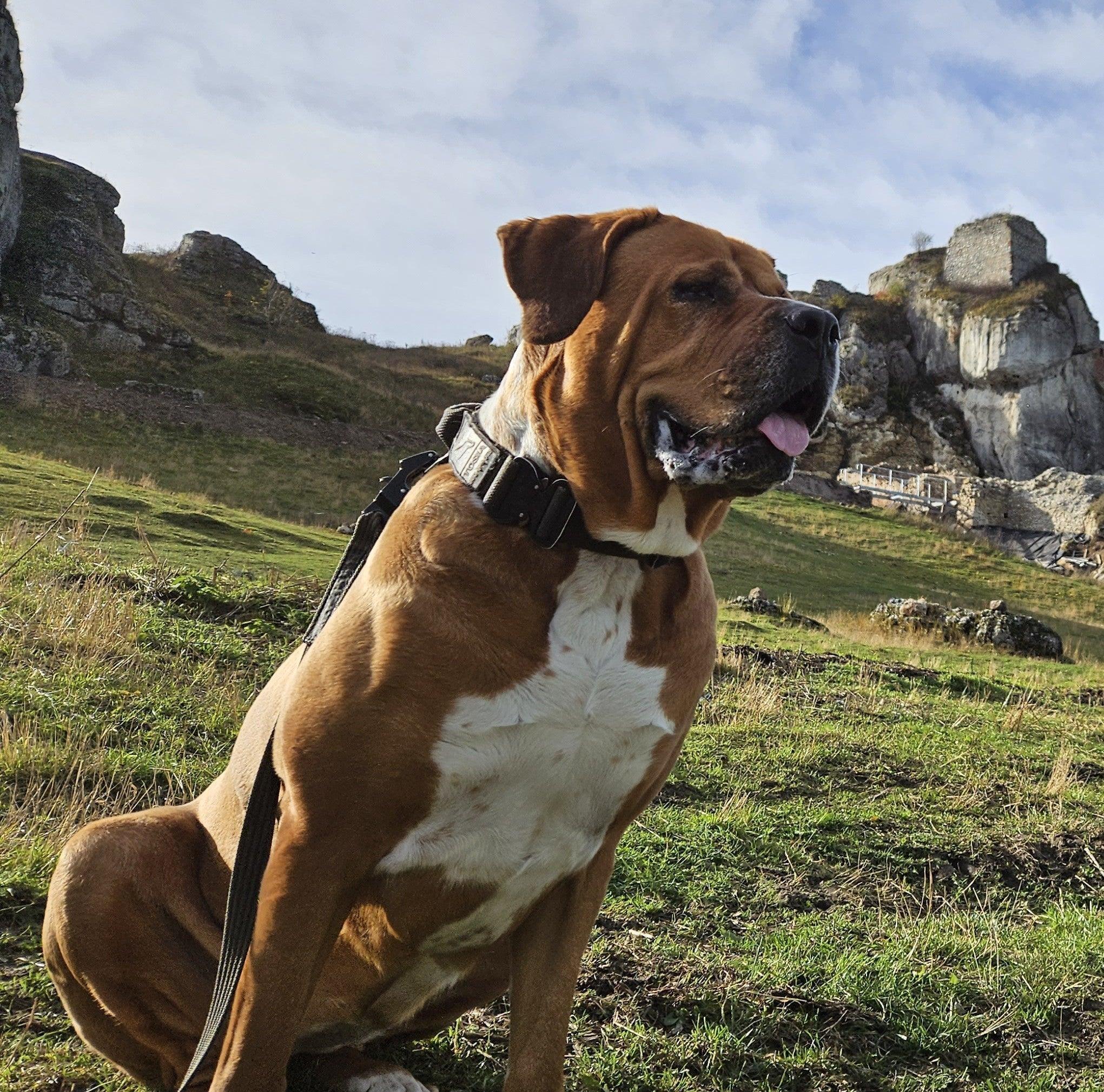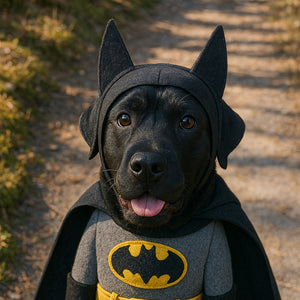
Maltese - a charming companion and how to care for him? A comprehensive guide
📌 Table of Contents
- Origin and history of the breed
- Appearance and characteristics
- Character and temperament
- Coat care and health
- Training and socialization
- Who is the Maltese for?
- Traveling and comfort with Petto
- The perfect bed for a Maltese
- Is it worth buying dog stairs?
- Interesting facts about the Maltese
- Frequently Asked Questions (FAQ)
- Summary

Origin and history of the breed
The Maltese is one of the oldest and most prized toy dog breeds in the world. Its history spans over two thousand years and is filled with royal salons, ancient trading ships, and myths.
The first mention of dogs resembling the Maltese dates back to ancient Egypt, where depictions of white, long-haired dogs have been found in the tombs of pharaohs. The Greeks and Romans also mentioned these elegant creatures, valuing them not only for their beauty but also for their sociability. In the 1st century AD, Pliny the Elder described the "canis Melitaeus"—a dog from the island of Melite (probably Malta or Melita in Sicily), which became the basis for the breed's current name.
In the Middle Ages and the Renaissance, the Maltese was a symbol of luxury. Bred primarily in royal and aristocratic courts, it often appeared in paintings by great masters, including Titian and Goya. Queens, duchesses, and ladies-in-waiting owned one, and its presence in palaces symbolized social status.
The modern breed developed in the 19th century, primarily in Italy and England. In 1888, the American Kennel Club recognized the Maltese as one of the first breeds, and since then, its popularity has steadily grown—both as a show dog and as a family companion.

Appearance and characteristics
The Maltese is a small dog with a charming and noble appearance. Its most distinctive feature is its long, snow-white, silky coat, which falls along the body, forming a striking cape. With its elegance and harmonious proportions, the Maltese gives the impression of a delicate and aristocratic dog – but this is only a facade, because beneath this fluffy appearance lies a bright and lively personality.
- Weight : 3–4 kg
- Height at the withers : 20–25 cm
- Silhouette : compact, proportionate, with a straight topline and moderately broad chest
- Head : medium-sized, with a short muzzle and a well-developed stop
- Eyes : large, dark, set slightly obliquely - expressive and shiny
- Nose : small, black, with a well-defined profile
- Ears : triangular, drooping, set slightly above the eye line, covered with long hair
- Tail : set high, carried in an elegant curve over the back, covered with abundant hair
Coat and its importance
The Maltese lacks an undercoat, which means its coat doesn't shed seasonally—instead, it grows continuously and requires regular trimming. Show dogs wear their coats full-length, while pets often sport practical hairstyles like the "puppy cut" or "teddy bear cut," which are easier to care for daily.
Color
The FCI-recognized breed allows only pure white coats. Only a very subtle, slightly ivory tint on the ears is permissible. Some lines may have a slight yellowish tint, but this is not desirable for show use.
This is a dog that, despite its small size, presents itself with enormous class and grace – no wonder it has been a symbol of status and elegance for centuries.

Character and temperament
The Maltese is a true companion dog – affectionate, devoted, intelligent, and sensitive. It loves human contact and would rather not leave its owner's side. This breed is emotional and strongly attached to its family, making it a wonderful family member and friend.
- Affectionate and loyal – strongly attached to one person, but affectionate towards the entire family
- Cheerful and energetic – he enjoys playing, likes toys and interacting with people
- Alert – despite its small size, it can alert you to a stranger
- Intelligent and easy to train – learns quickly, especially with positive reinforcement
- He likes to be the center of attention – he feels comfortable at exhibitions, in therapy and in company.
Emotionality and the need for closeness
Maltese dogs don't tolerate being alone. They don't react well to extended absences from their owners—they can become sad, bark, or exhibit separation anxiety. For this reason, they thrive in homes where someone is with them for most of the day. They're an excellent dog for those who work remotely or lead a quiet, home-based lifestyle.
Surprising courage
Although they may look like mascots, Maltese dogs can display surprising courage, especially when defending their loved ones. They have a strong protective instinct and can sometimes become possessive of their owners if not properly socialized.
A good companion for children and adults
The Maltese is a gentle and tolerant dog, but thrives best with people who are gentle, calm, and attentive. In families with small children, it's a good idea to teach them how to properly handle their pet, as Maltese dislike sudden movements and loud noises.
It is an ideal dog for a home with children (if they are taught to be gentle), for seniors and people looking for an affectionate pet.
Coat care and health
The Maltese requires regular, yet loving care. Its snow-white coat is the breed's hallmark – silky, long, and dense, without an undercoat, which prevents shedding. However, this beauty requires consistent work and the right cosmetics.
Daily coat care:
- Combing : daily, preferably with a wide-toothed comb or a box brush; prevents tangling and tangles
- Detangling spray : before combing, it is worth using conditioners or detangling sprays
- Cleansing the eye area : daily wiping with a damp cotton pad helps prevent brown tear marks
Bath care:
- Baths : every 1–2 weeks, using specialized whitening and moisturizing shampoos
- Drying : always use a dryer, preferably while combing to prevent hair from bunching up
- Grooming : every 4–6 weeks, depending on hair style – a show coat requires more work than a puppy cut
General hygiene:
- Teeth : daily brushing or use of dental chews – Maltese are very susceptible to tartar and periodontal disease
- Ears : clean once a week, especially if the coat is thick and may retain moisture.
- Nails : trim every 2–3 weeks
- Paws and intimate areas : it is worth trimming the hair between the pads and checking the cleanliness of the bottom
Preventive health care:
Health-wise, the breed may be susceptible to:
- excessive tearing and discoloration under the eyes
- malocclusion and gum disease
- tracheal collapse
- skin and food allergies
- patella dislocation
A well-fed and cared-for Maltese can often live to be 15–18 years old, enjoying excellent health and appearance for many years. The key is regularity, appropriate grooming, and close contact with your pet – the Maltese treats each grooming session as time spent with their beloved owner. A well-fed and cared-for Maltese can often live to be 15–18 years old.

Training and socialization
Although the Maltese looks like a stuffed toy, it requires clear rules and regular training. This dog responds well to positive attention, gentleness, and patience, but it also needs consistency.
Key elements of the training:
- Learning basic commands from a puppy: "sit", "stay", "come to me", "come to my place" - increases safety and facilitates everyday functioning
- Toilet training : Maltese are naturally clean, but require patience to train – it is best to use hygiene mats and a regular walking schedule
- Socialization with people and animals : from the first walks it is worth familiarizing your dog with other dogs, children, sounds, urban situations and new places
How to train a Maltese:
- Use positive reinforcement – treats, praise, play
- Avoid punishment – this dog is very emotionally sensitive and gets discouraged easily.
- Train briefly but regularly – 5–10 minutes several times a day brings better results than a long session
- Vary your exercises – add new commands and elements to keep you focused and motivated
Ideas for mental activity:
- logic puzzles for dogs
- fun in searching for treats
- learning tricks: rolling, high-fiving, spinning, fetching with various objects
Maltese are great for trick training, dog therapy, and mini agility – their intelligence and eagerness to please their owner make them excellent canine students.
Regular training and socialization make the Maltese not only a charming family member, but also a well-behaved city dog – calm during travel, guests, and everyday family situations.

Who is the Maltese for?
The Maltese is a dog born to be close to people. He thrives in a home where he can count on attention, affection, and shared moments. Thanks to his small size and calm disposition, he's a perfect fit for many lifestyles—provided his owner is willing to dedicate time and energy to him.
The Maltese will be perfect for:
- Seniors and older people – need a calm daily rhythm and closeness, does not require intense physical effort
- Families with children – if children are taught to be gentle, a Maltese will be a wonderful companion for them
- Singles and couples – the perfect lap dog for those who value contact with their pet and work remotely
- Residents of cities and small apartments – they don't need a large garden, walks and activities at home are enough
- Allergy sufferers – his fur does not shed, which often helps reduce allergy symptoms
Who might it not be suitable for?
- For very busy people who are rarely at home
- For owners who don't like grooming - the Maltese requires systematic care for its coat
- For families with very young children who do not yet understand how to handle a delicate dog
This is a dog for people seeking an affectionate, intelligent, and joyful companion. The Maltese hates loneliness—its happiness depends on the presence of a beloved human and daily interactions.
Traveling and comfort with Petto
The Maltese is perfect for traveling. Its small size makes it easy to transport in a car, plane, or on public transportation.
- Petto Oi Single car seat – perfect for solo travel
- Petto Oi Duo beige car seat – when you travel with another pet
These accessories increase your dog's safety and comfort, and provide you with peace of mind.
The perfect bed for a Maltese
The Maltese loves comfort and a soft surface to rest on. We recommend:
- Cozy ecru bed – cosy and stylish
- Fluffy gray – for dogs that like to cuddle in soft material
Place the bed in a quiet place, but close to you – the Maltese is a house dog that needs human presence.
Is it worth buying dog stairs?
Definitely yes – the Maltese often jumps on furniture, which, given its delicate joints, can lead to injuries.
- Petto's Takai steps provide safe access to the couch and bed
- They reduce the risk of spine and hip overload
- They make the dog more independent
Interesting facts about the Maltese
- 📜 This breed is over 2,000 years old - it appeared in ancient Egypt, Greece and Rome
- 👑 A favorite of queens – it was owned by, among others, Marie Antoinette and Queen Elizabeth I
- 🎨 It appears in the paintings of Titian and Goya – often as a symbol of luxury and refinement
- ✈️ One of the most travel-friendly dogs – thanks to its small size, it is easy to take it on a plane or train
- 🧠 Very intelligent – learns tricks faster than most small breeds
- 💡 Often used in dog therapy – thanks to its gentle nature and high empathy
- ✂️ Loves to be brushed and groomed – many individuals treat it as a ritual of closeness
- 🏆 Winner of many prestigious exhibitions – Maltese regularly win Best in Show titles
Frequently Asked Questions (FAQ)
Is the Maltese suitable for allergy sufferers?
Yes, their fur doesn't shed and doesn't often cause allergies – but it's worth doing a contact test. This is one of the most popular breeds chosen by people with mild allergies to fur.
How long does a Maltese live and what influences its longevity?
Typically 15–18 years, even longer with good care. Key factors include quality food, regular dental care, preventative veterinary care, and a close relationship with their owner.
Is the Maltese a good breed for families with small children?
Yes, as long as children are taught gentleness and respect for animals. This dog is gentle but sensitive, so it's not suitable for playing with very active children without adult supervision.
How much does it cost to keep a Maltese per month?
Costs are approximately PLN 200–400 per month – depending on the quality of food, frequency of visits to the groomer and expenses for toys, cosmetics and dietary supplements.
What cosmetics are best for caring for a Maltese?
Gentle moisturizing shampoos, detangling conditioners, antistatic sprays, and eye washes are all good options. Products designed specifically for white fur work well.
Can a Maltese travel by plane?
Yes – due to its small size, it can travel in the passenger cabin in an airline-approved carrier. Always check the current carrier regulations.
Can a Maltese be left home alone?
For a short time, yes, but not for many hours a day. This breed is very attached to humans, does not tolerate loneliness well and may exhibit separation anxiety.
Does the Maltese shed hair?
No. The Maltese has no undercoat and does not shed seasonally. Their hair grows continuously, so they require regular trimming and brushing.
Summary
The Maltese is a breed that combines unique appearance, a huge heart, and an impressive history. Not only is it beautiful, but it's also intelligent, affectionate, and graceful. For many, it's the dream dog—loyal, sociable, and gentle, yet well-suited to life in an apartment, a house with a garden, or even traveling.
His snow-white coat requires care, and his emotional nature demands closeness and attention, but these needs are rewarded with a vengeance. In return, you receive a loyal friend who brings joy, peace, and an abundance of warmth every day.
This is a breed for those looking for a dog to love—literally, every day. If you have the time, patience, and love to offer, the Maltese will reward you with boundless devotion and an irresistible charm.
Whether you're a senior, a parent, or single, this white dog can transform your everyday life. A Maltese isn't just a decorative accessory—it's a full-fledged family member who loves with all of his being.
The Maltese is a breed recognized by the world's most important canine organizations. For official breed standards and characteristics, please consult the following resources:
- FCI – Fédération Cynologique Internationale – official breed standard for the Maltese (FCI no. 65),
- ZKwP – Polish Kennel Club – list of breeds recognized by the FCI in Poland,
- AKC – American Kennel Club – description of the Maltese breed in the AKC classification,
- The Kennel Club (UK) – Maltese breed standard according to the British Kennel Club.
See more at: Petto.com.pl
































































 https://petto.com.pl
https://petto.com.pl